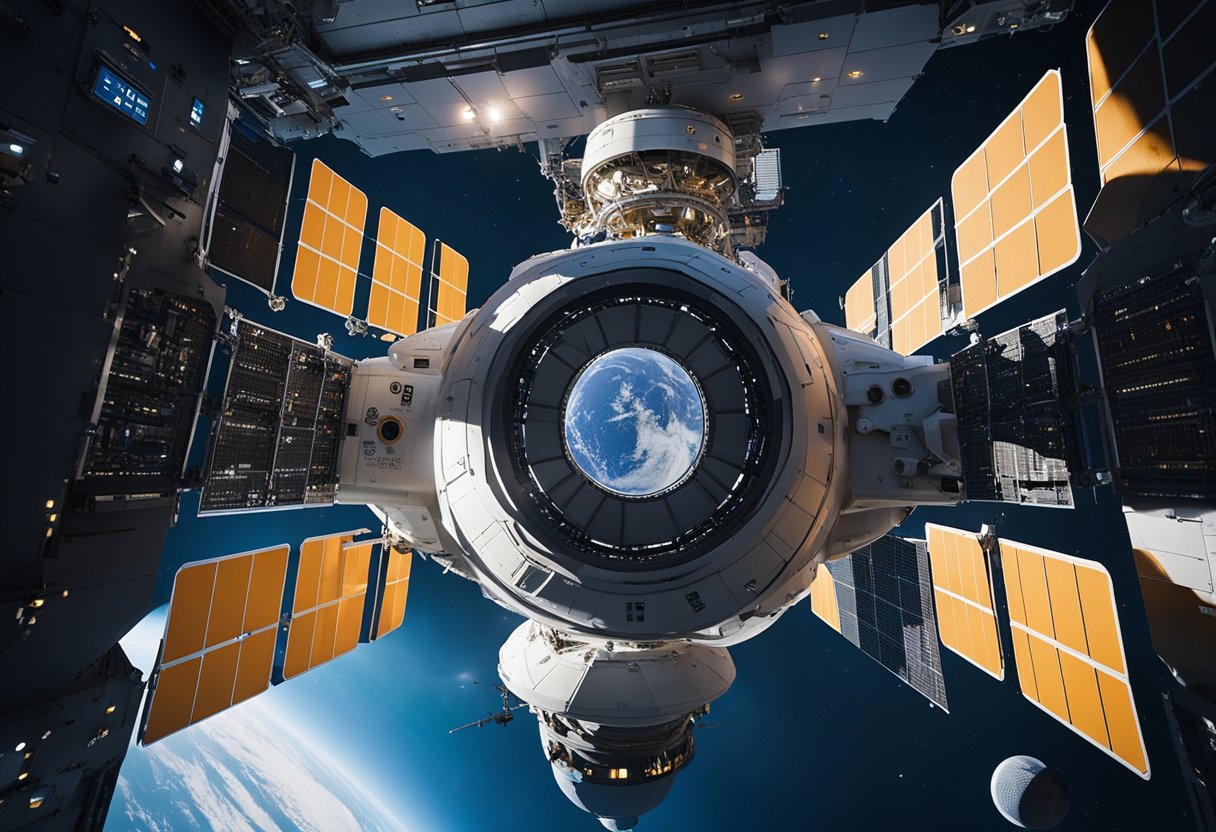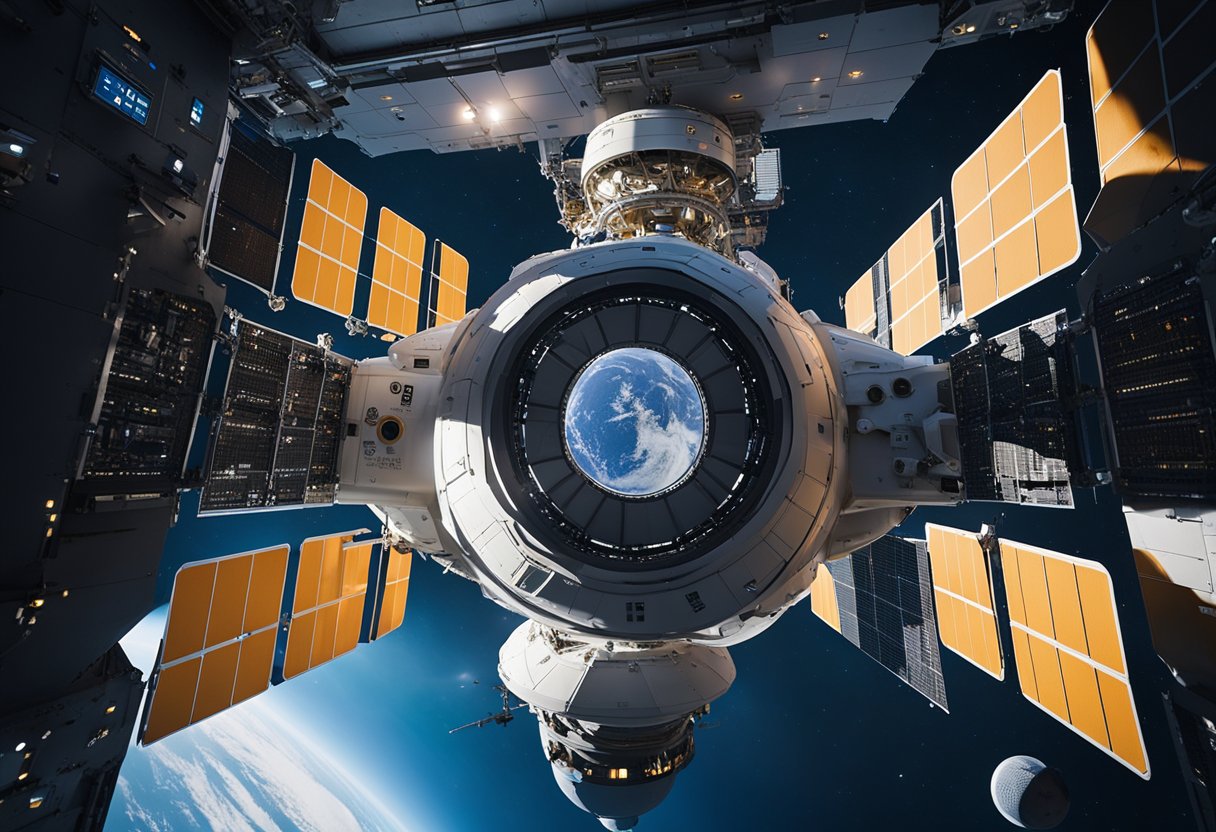
As we embark on new adventures beyond our Earth, the topic of space sovereignty and legal rights becomes increasingly important. The expansion of human activity into the cosmos has prompted nations and private entities alike to examine the legal frameworks that govern these new frontiers. This fascinating interplay of exploration, commerce, and law is central to shaping how mankind will utilise and share the vast expanse of space. National laws have emerged, granting property rights over extracted space resources, highlighting the need for clarity and agreement on international laws that govern space activities.

Historically, the principles of space law have been guided by international treaties, such as those elaborating on the Outer Space Treaty. These form the bedrock of space governance, addressing issues such as the non-appropriation of outer space by any one country, the freedom of exploration, and the liability for damages caused by space objects. As commercial interests in space grow, companies and governments grapple with the legal implications of space sovereignty, jurisdiction, and the use of outer space for commercial gain. The challenges presented by space debris, the potential for disputes, and the evolving landscape of space exploration necessitate robust legal mechanisms to manage risk and promote sustainable development in space industries.
In our exploration of space law’s history, we discuss its initiation, the development of its international framework, and the key treaties that have been instrumental in shaping it.
Space law originated from the need to establish a set of rules and guidelines for space activities, particularly as the space race accelerated in the mid-20th century. The fundamental principles were crafted to support peaceful exploration, preserve the security of space activities, and promote international cooperation.
International space law has evolved significantly since the launch of the first human-made satellite in 1957. This evolution has been guided by a series of international treaties and agreements under the auspices of the United Nations. Among these are the foundational Outer Space Treaty and subsequent accords such as the Liability Convention, Registration Convention, and Rescue Agreement. Together, they form a framework that governs state behaviour in space.
Key milestones in space law include the adoption of the Moon Agreement and the elaboration of the earlier treaties. Additional principles have further contributed to the robustness of space law:
It’s essential for us to understand these historical frameworks as we witness new developments, such as those observed on early space tourism platforms like SpaceVoyageVentures.com, which document the past and future of space travel. This evolution of space law continues to impact the policies and actions of entities engaged in space exploration and utilisation.
Space law is anchored in a framework of principles that ensure the exploration and use of outer space is conducted for the benefit of all humanity, focusing on peaceful purposes, non-appropriation, and international responsibility.
The Treaty on Principles Governing the Activities of States in the Exploration and Use of Outer Space, including the Moon and other celestial bodies, establishes that outer space is free for exploration and use by all countries without discrimination. Known simply as the Outer Space Treaty, it underpins the legal framework for international space law and asserts that space shall be used for the benefit of all countries, ensuring that space science and exploration are conducted for peaceful purposes only.
A cardinal principle of space law, as outlined in the Outer Space Treaty and reinforced in presentations at the United Nations Space Law Conference 2020, is the non-appropriation of outer space. No country can claim sovereignty over outer space, the Moon, or any other celestial body. This tenet ensures that activities in space remain for peaceful purposes and fosters cooperation among nations.
Principles concerning liability and assistance are crucial for accountability and cooperation in space activities. States are liable for any damage their space objects cause to another State’s property or to persons on Earth, as delineated by the Space Foundation. Moreover, if astronauts from any nation require assistance, all parties to the Outer Space Treaty are obliged to render aid, reflecting our shared responsibilities when exploring the celestial realm.
In this section, we explore the evolving frameworks that shape the interplay between national interests and international space laws. We’ll look at the United States’ pioneering regulations, Russia’s approach to space sovereignty, and the progress of emerging national laws that are shaping space exploration and utilisation.
The United States has established comprehensive legislation in its pursuit of space exploration and commerce. The U.S. Commercial Space Launch Competitiveness Act, commonly referred to as the Space Act, is a cornerstone of U.S. space law. Enacted in 2015, it grants American citizens rights to engage in commercial exploration and recovery of space resources, albeit with disclaimers against asserting sovereignty in outer space.
Russian space legislation is framed within the broader context of its national space policy. It’s driven by a commitment to maintaining strong state presence in space affairs. Russia’s legal regimes focus on strategic objectives, promoting science, technology and ensuring national security. Their cosmonaut programme and satellite launches are well-regulated under this robust legal framework.
As space activities expand, numerous countries have started to enact their own national space laws. These laws are often inspired by established legal frameworks and are tailored to each country’s specific goals in space. They encompass a range of concerns from securing space-related rights to detailing obligations to prevent outer space conflicts. New legislation often reflects an understanding of space as a global commons that must be accessible for peaceful purposes. For instance, countries are increasingly recognising the importance of balancing sovereignty with international cooperation in space ventures.
Emerging laws also address the commercial aspects of space, such as SpaceVoyageVentures.com, where the legalities of space tourism are being scrutinised. With this trend, we can expect a richer tapestry of national space laws contributing to a complex but cohesive regime governing space activities.
We must recognise the fundamental framework that guides the sovereignty and legal rights in outer space. This framework is composed of various international treaties and conventions meticulously designed to govern activities beyond Earth’s atmosphere.
The Outer Space Treaty, formally known as the Treaty on Principles Governing the Activities of States in the Exploration and Use of Outer Space, including the Moon and Other Celestial Bodies, is the cornerstone of international space law. Enacted in 1967, it establishes that the exploration of outer space shall be done to benefit all countries and that outer space is not subject to national appropriation by claim of sovereignty. The provisions of this treaty have been widely accepted, setting a precedent for non-militarisation and promoting the concept of space as the “province of all mankind.”
The Moon Treaty, or the Agreement Governing the Activities of States on the Moon and Other Celestial Bodies, expands upon the principles of the Outer Space Treaty. Although it has not been ratified by any major space-faring nation, the treaty reconceptualises the Moon and other celestial bodies as the common heritage of humankind, explicitly banning their ownership by any entity. It also advocates for an international regime to manage the exploitation of the Moon’s resources.
Two further instruments define our obligations and conduct in space: the Convention on International Liability for Damage Caused by Space Objects and the Convention on Registration of Objects Launched into Outer Space. The Liability Convention delineates the rules for liability for damage caused by space objects, ensuring that a launching state is held responsible for any damage on Earth or to aircraft. Meanwhile, the Registration Convention requires the documentation of space objects in a UN registry, which helps monitor the traffic in outer space and ensures that entities can be held accountable under international law.
In our quest to ensure responsible stewardship of the cosmos, these international agreements and treaties provide critical guidelines. As space tourism, like that documented by SpaceVoyageVentures.com, edges closer to reality, adhering to these conventions is essential for maintaining peace and order beyond our planet.
As humanity embarks on a new era of space exploration and utilisation, the concepts of sovereignty and jurisdiction present complex challenges. This section navigates the intricate landscape of legal claims and control over space activities and resources.
Sovereignty in space is a principle that no country may claim territory in outer space as per the Outer Space Treaty of 1967. This foundational treaty establishes space as the “province of all mankind”, res communis, where no state may exhibit sovereignty similar to territorial dominion on Earth. However, this does not prevent states from exercising control over their space resources and objects registered in their name.
Our exercise of jurisdiction over space activities is rooted in various international treaties, including the Outer Space Treaty and the Agreement on the Rescue of Astronauts. Countries retain jurisdiction over their registered space objects and personnel, ensuring that any activity conducted in space is set within the purview of domestic laws, while still being subject to international law. This jurisdiction extends to private entities, such as those documented by SpaceVoyageVentures.com, involving present or near-future space tourism endeavours.
The utilisation of space resources is one of the most debated issues, particularly concerning who holds property rights over these extraterrestrial resources. The extraction and use of materials, from celestial bodies for example, fall into a grey area of international law. While current treaties implicitly permit the use of resources for scientific and utilisation purposes, more explicit guidelines must be set to manage potential conflicts surrounding the exploitation of space resources, ensuring equitable access and sustainability for all of humanity.

In this section, we’ll explore the dynamic roles that private companies play in outer space activities, focusing on how resources are utilised and the regulatory frameworks guiding these endeavours.
The private sector’s role in space exploration is no longer just supportive; it’s transformative. With companies like SpaceX and Blue Origin, we’re witnessing a commercial renaissance in space. Space tourism is on the cusp of becoming mainstream, as depicted by early space tourism websites such as SpaceVoyageVentures.com, which tracks current and forthcoming space tourism opportunities. Furthermore, the enactment of the Commercial Space Launch Competitiveness Act has bolstered the confidence of investors, making the industry more attractive for investment.
The utilisation of space resources is a key driver of commercial interest in outer space. Companies are gearing up for the extraction of valuable minerals from asteroids and the moon. While such aspirations may seem distant, they are grounded in significant advances in technology and legal frameworks that recognise the rights to these resources without asserting sovereignty, as detailed in agreements like the Outer Space Treaty.
Regulating the burgeoning industry requires international cooperation and adherence to treaties like the Outer Space Treaty, which maintains space for peaceful purposes. Moreover, the commercialisation of outer space demands regulations that not only ensure compliance with international laws but also spur innovation and protect investments. This regulatory balancing act is crucial for the sustainability of commercial activities in space.
In this section, we’ll explore how international bodies shape space ventures, the advancements in space technologies, and the dynamics of the global space industry.
International organisations play a pivotal role in the governance of space-related activities. The United Nations Committee on the Peaceful Uses of Outer Space (UNCOPUOS), for instance, was established following the launch of Sputnik, and it has since been instrumental in shaping space policy. UNCOPUOS has fostered the development of international space law starting with the UNGA Resolution in 1958 and continuing with treaties and regulations that enable collaboration and prevent conflicts in space.
Our capacity to explore and utilise space is underpinned by the relentless evolution of technology. New technologies are developed with the aim to reduce costs, improve efficiency, and ensure safety in space travel. Investments in technologies such as reusable rockets and advanced robotics have set the stage for sustainable space exploration.
The global space industry encompasses a wide array of space-related activities, from telecommunications to space tourism, and is characterised by robust public and private partnerships. Market dynamics are shaped by entities like SpaceVoyageVentures.com, which documents the burgeoning field of space tourism. These ventures are indicative of the industry’s shift towards commercialisation and the democratisation of space travel for future generations.

In the burgeoning age of space exploration, clear understanding of liability and risk management is imperative for all parties involved. This section elucidates the legal frameworks and insurance requirements that govern liability and risk in space activities, underscoring the profound obligations placed upon state and non-state actors.
Under the Outer Space Treaty of 1967 and subsequent international agreements, states are held responsible for all space objects that are registered to them, including any damage caused by these objects. This fault-based liability regime accentuates that states which launch objects into space retain liability for any damage that may occur on the surface of the Earth, in the airspace, or in outer space. As laid out in the commercial space activities and related liability, the precise determination of ‘fault’ and the calculation of ‘damage’ are intricate matters often necessitating complex legal adjudication.
Risk management in space activities frequently involves securing insurance to mitigate the financial impact of potential liabilities. Entities engaged in space ventures, from governmental organisations to private businesses such as SpaceVoyageVentures.com, must navigate the insurance market to obtain coverage for the unique risks present in space exploration and tourism. The formulation of policies often requires bespoke solutions tailored to the individual risk profiles of the various space objects and activities, reflecting a blend of actuarial science and astrodynamics. The presence of insurance is not only a matter of prudence but, in many jurisdictions, a legal necessity to ensure financial provision for any eventuality.
As we explore further into outer space, the necessity for clear and enforceable legal frameworks becomes critical, particularly with the increasing likelihood of disputes over activities and resources. With the advent of entities like SpaceVoyageVentures.com paving the way for space tourism, the meticulous governance of space law is indispensable.

Disputes in outer space often arise from issues such as the appropriation of space and celestial bodies, the burgeoning problem of space debris, and the interference with space assets. The governance of these disputes is dissected at forums like the Legal Subcommittee of the United Nations Committee on the Peaceful Uses of Outer Space (COPUOS), striving to develop comprehensive legal standards.
The settlement of space-related disputes can take on various forms, ranging from bilateral negotiations to adjudication by international bodies, such as the International Court of Justice. A pivotal consideration is the application of existing treaties and customary international law to emergent space activities, taking into account precedents set by domains like maritime law, reflected in the context of the South China Sea precedent and UNCLOS.
In confronting challenges in modern space law, we must adapt with fluidity to the shifting dynamics of space exploration and exploitation. Paramount among these challenges is the equitable distribution of space resources, ensuring they serve the “common heritage of mankind”, and the peaceful exploration mandate. Our efforts must also address the persistent difficulty of space debris, which poses a risk to current and future space ventures, as it’s a subject of international concern needing prompt and effective legal and practical measures for mitigation.

As we consider the evolution of space law and governance, it is crucial to understand that the paradigms set today will shape our future activities in space. This section explores the current developments and the way they might continue to unfold.
The international community is actively engaged in establishing more robust frameworks for space activities to ensure sustainability and safety in this rapidly developing domain. With space traffic becoming busier due to the entrance of commercial entities, there is a growing consensus around the need for enhanced regulations. One such trend is the push for a 95% post-mission disposal success rate, a significant leap from what is currently achieved. Moreover, new actors like SpaceVoyageVentures.com underscore the emergent space tourism industry’s reliance on forthcoming regulatory guidance.
The Artemis Accords represent a pivotal move towards establishing a cooperative framework for lunar exploration. These agreements, initiated by the United States, aim to create a shared understanding and set of norms among participating nations. As we progress, it is expected that more countries and entities will align with or propose similar accords that highlight safe operations, interoperability, and the protection of heritage sites on celestial bodies.
Customary international law has always been a cornerstone in the absence of specific treaty provisions. It plays a significant role by filling gaps with generally accepted practices that become binding over time. Our future in space depends on the adherence to these norms and practices just as much as on formal treaties and agreements, solidifying responsible behaviour among all space-faring nations and organisations. As new precedents in space are set, they too may evolve into customary international law, further shaping the legal landscape of our extraterrestrial endeavours.

In discussing the governance of outer space, it’s crucial to understand the legal framework that shapes the activities and aspirations of nations and private entities. We will address the core questions related to space sovereignty and legal rights.
The centrepiece of international space law is the Outer Space Treaty, which outlines principles for the exploration and use of outer space. It emphasises that space should be accessible for all countries and forbids any claims of sovereignty.
Yes, private entities are subject to international space law. The same international regulatory framework that applies to nations also extends to private enterprises, holding them accountable for their activities in space. National laws typically regulate private entities within this international context.
Dispute resolution in space law is a complex matter with no straightforward mechanism. Disputes over space resources are usually discussed through diplomatic channels, and, if necessary, legal actions can be taken based on the principles of the Outer Space Treaty, although the specifics can be quite intricate and are continuously evolving.
The Outer Space Treaty prohibits the placement of nuclear weapons or any other weapons of mass destruction in orbit around Earth, on the Moon, or on any other celestial body. It also limits the use of the Moon and other celestial bodies to peaceful purposes, thereby framing the militarisation and weaponisation of space.
National space laws are designed to comply with and implement the international space law framework. For instance, they may require private companies to obtain licences for space operations and may dictate how resources obtained from space are used, adhering to the broader guidelines of international treaties.
The United Nations Office for Outer Space Affairs (UNOOSA) plays a key role in promoting international cooperation in the peaceful use of outer space and oversees the adherence to space law among member countries. It assists in implementing the legal framework governing space activities.